Table of Contents
Introduction
You may have heard of the gut microbiome, but do you understand its importance?
Hidden within each of us exists an entire ecosystem of microscopic life forms, teeming with trillions of microorganisms that collectively make up the microbiome.
This vast community of “gut bugs,” made up of bacteria, archaea, viruses, fungi, and protozoa, plays a key role in our overall health and well-being.
In recent years, there has been a growing interest in understanding the microbiome and its impact on human health. Are these gut bugs our friends, helping us thrive, or are they foes, causing damage to our bodies?
For a long time, bacteria were seen as harmful germs that caused infections and disease. However, research over the past few decades has revealed that many bacteria are beneficial.
The gut microbiome assists in digestion, regulates the immune system, and protects against infection.
There is evidence that disturbances in the composition of the gut microbiome, known as dysbiosis, are linked to gastrointestinal disorders, autoimmune diseases, and even neurological conditions.
This has led to debate over whether our resident microbes are friends or foes. The answer is complex; while an imbalanced microbiome can trigger inflammation and disease, a healthy microbiome confers many advantages.
Understanding the factors that shape our microbiomes and developing therapies that target dysbiosis, an imbalance or disruption to these gut microbial communities, may be key to optimising health.
We now understand that the microbiome plays a key role in regulating human health and disease, serving as a critical counterbalance to our own physiology.
At the core of this relationship lies a delicate symbiosis, developed over millions of years of co-evolution between microbes and humans.
What is the microbiome?
So, what exactly is the microbiome?
In simple terms, it refers to the community of microorganisms that reside within our bodies, primarily in our gut. This diverse collection of bacteria, archaea, viruses, fungi, and protozoa interacts with each other and with our body’s cells in complex ways.
We have 30 trillion human cells and about 39 trillion microbial cells. So by that measure, we are only about 43% human.
The microbiome represents a dynamic ecosystem, constantly evolving and adapting to environmental influences.
It is influenced by factors such as diet, lifestyle, genetics, and medication intake. The balance of a variety of microbial species within the intestinal tract is crucial for maintaining health and well-being.
The common bacterial phyla of the human microbiome include Firmicutes, Bacteroidetes, Actinobacteria, Proteobacteria, and Verrucomicrobia.
Bacteroidetes and Firmicutes are the predominant.
Here are some common bacteria that you may come across.
- Bifidobacteria: These friendly bacteria help with digestion, nutrient absorption, and immune function, which is especially important for infants.
- Lactobacillus: Renowned for their role in yoghurt production, these bacteria also contribute to gut health by producing lactic acid, which discourages harmful microbes.
- Bacteroides: These abundant residents are key players in breaking down complex carbohydrates and aiding in digestion.
- Faecalibacterium prausnitzii: This bacteria produces beneficial short-chain fatty acids that nourish gut cells and regulate inflammation.
- Proteobacteria: While some strains can cause illness, many E. coli strains are essential for vitamin K production and breaking down food particles.
- Ruminococcus: These fibre-fermenting specialists help extract energy from complex carbohydrates and contribute to a healthy gut lining.
- Clostridium: This large and diverse genus includes some beneficial members like Clostridium symbiosum, which aids in digestion and nutrient absorption, but also Clostridioides difficile, known for causing antibiotic-resistant diarrhoea.
- Prevotella: This phylum is associated with a more plant-based diet and may play a role in breaking down complex plant sugars.
- Akkermansia muciniphila: This unique bacterium helps maintain a healthy gut lining and may play a role in regulating metabolism.
- Streptococcus: Some strains are beneficial gut commensals, while others can cause infections in other parts of the body.
- Actinobacteria This phylum includes the well-known probiotic genus Bifidobacterium.
- Fusobacteria: This has been associated with colorectal cancer.
- Enterococcus play a part in modulation of the immune system.
A balanced and diverse gut microbiome is vital for good health, with these common bacteria collaborating to support functions such as digestion and the immune system.
The Microbiome at Birth
The development of a healthy gut microbiome following birth is crucial for the overall health of the infant during childhood and into adulthood. The method of delivery can influence the initial microbes that the infant is exposed to.
From the moment we are born, our microbiome begins to develop and evolve, shaping our immune system, digestion, and even our mental health. Research suggests that the development of the microbiome may begin before birth.
The Early Seedlings: Microbiome Acquisition at Birth
Vaginal Birth:
When a baby is born vaginally, they are exposed to a diverse array of microbes as they pass through the birth canal. This initial exposure lays the foundation for the development of their microbiome. The mother’s vaginal microbiota, including beneficial bacteria such as Lactobacillus and Bifidobacterium, are transferred to the baby during delivery. These early microbial colonisers play a vital role in the baby’s immune system development and protection against pathogens.
Caesarean Section:
In the case of a caesarean section (C-section) birth, the baby’s first exposure to microbes is different. Instead of passing through the birth canal, they are delivered through surgical means, bypassing the vaginal microbiota. As a result, C-section babies tend to have a different initial microbial composition, often resembling the skin and environmental microbes found in the operating room. These bacteria are not as beneficial as those found in the vagina. However, their microbiome can still be affected by other factors, like breastfeeding and skin-to-skin contact.
Early Life: The Microbiome Takes Shape
There are a number of factors that can influence the development of a baby’s microbiome:
Diet: Breastfeeding is the best way to give your baby the microbes they need to develop a healthy gut. Breast milk contains prebiotics, which are food for beneficial bacteria like Bifidobacteria.
For babies who are formula-fed, their microbiome differs. While formula milk is designed to provide essential nutrients, it lacks the live bacteria and prebiotics found in breast milk. . However, the microbiome can still reach a state of equilibrium over time.
Antibiotics: Antibiotics can kill both good and bad bacteria. This can disrupt the development of a healthy microbiome.
Environmental Exposures: Exposure to pets, dirt, and other environmental factors can help to promote the development of a healthy microbiome.
A healthy microbiome is important for many aspects of health, including digestion, immunity, and mood. There is increasing evidence that the microbiome may also play a role in the development of chronic diseases such as obesity, asthma, and allergies.
Solid Foods:
As infants shift from a milk-based diet to solid foods, their microbiome undergoes further development. Introducing a variety of fruits, vegetables, and whole grains provides new sources of fibre and nutrients that support the growth of diverse microbial communities in the gut. This dietary diversity contributes to the maturation and stability of the microbiome.
The Journey to Maturity:
When is the microbiome fully developed?
While the microbiome begins to develop at birth, it takes time for it to reach a state of maturity. The microbiome continues to evolve throughout childhood and adolescence, gradually becoming more stable and diverse. By the age of three, the microbiome composition starts to resemble that of an adult, although individual variations still exist.
Can the microbiome be influenced later in life?
Yes, the microbiome is dynamic and can be influenced throughout life. Factors such as diet, stress, medications, and environmental exposures can impact the composition and diversity of the microbiome.
Are there any long-term effects of C-section delivery on the microbiome?
While C-section delivery may result in a different initial microbial composition, studies suggest that the microbiome can still reach a state of equilibrium over time. However, research is ongoing to understand the potential long-term effects of C-section on the microbiome and overall health.
How can I support the development of a healthy microbiome in my child?
Breastfeeding, introducing a variety of nutritious foods, minimising the use of unnecessary antibiotics, and promoting a clean and hygienic environment can all contribute to the development of a healthy and diverse microbiome in children.
Can the microbiome impact my child’s immune system?
Yes, the microbiome plays a key role in immune system development. The early colonisation of beneficial bacteria in the gut helps educate and train the immune system, promoting a balanced immune response and protecting against pathogens.
Are probiotics beneficial for my child’s microbiome?
Probiotics, which are live beneficial bacteria, can be beneficial for supporting a healthy microbiome. However, it is important to consult with a healthcare professional before giving probiotics to your child, as the appropriate strains and dosages may vary depending on their age and specific health needs.
From birth, the human microbiome embarks on a remarkable developmental voyage, influenced by factors such as the method of delivery, dietary habits, and interaction with the environment. . Recognising the essential role of the microbiome is crucial for nurturing children’s health. Proactive measures to support this microbial community can have far-reaching benefits for a child’s well-being. Cultivating a rich and well-balanced microbiome from an early age sets the stage for enduring health benefits.
The Importance of a Healthy Microbiome in Early Childhood
A healthy gut microbiome in early childhood is linked to:
• Stronger immune system function
• Reduced risk of allergies and asthma
• Better digestion and nutrient absorption
• Potential benefits for long-term health
Tips for Promoting a Healthy Microbiome:
• Breastfeed if possible.
• Introduce solids gradually, prioritising fruits and vegetables.
• Minimise unnecessary antibiotic use.
• Encourage outdoor play and interaction with pets (with proper precautions).
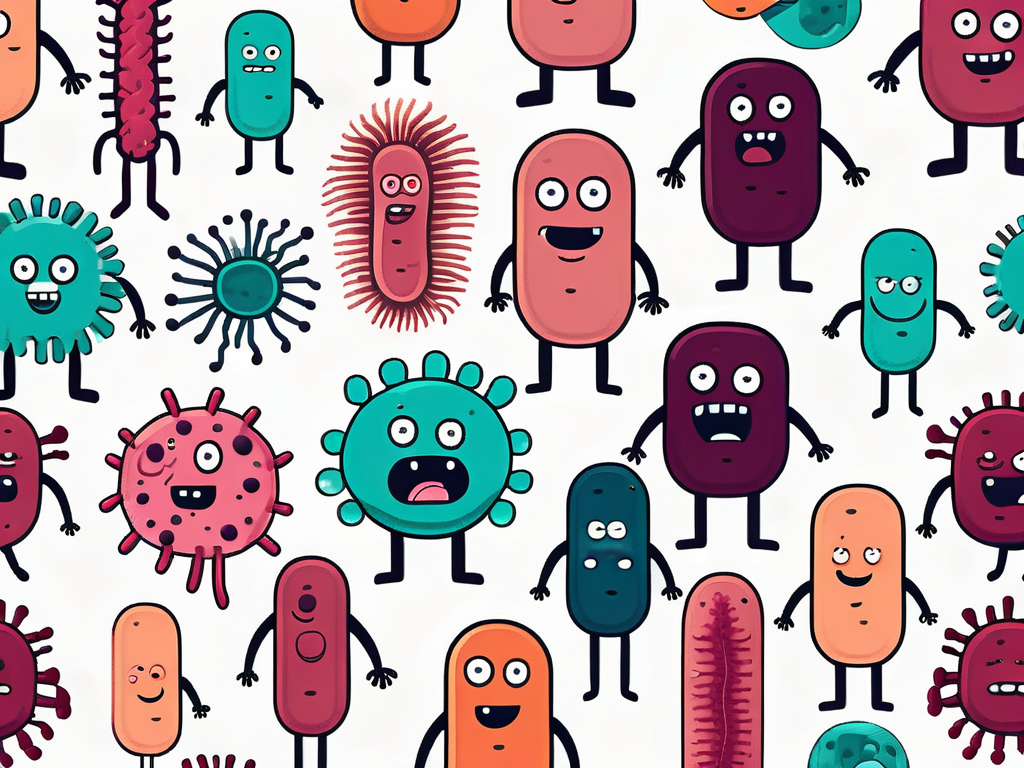
The Good and the Bad Gut Bugs
Not all gut bugs are created equal. Some are beneficial, while others can potentially cause harm. Let’s explore these different types:
Beneficial Gut Bugs
Beneficial gut bugs have gained popularity in recent years due to their positive impact on our health. These friendly bacteria, such as Lactobacillus and Bifidobacterium, help maintain a healthy gut environment.
They compete with harmful bacteria for resources and space, producing antimicrobial compounds that keep the bad bugs in check. They have been associated with improvements in conditions such as diarrhoea, irritable bowel syndrome, and even mental health disorders.
They play a crucial role in supporting the immune system. By interacting with immune cells in the gut-associated lymphoid tissue, they help regulate the body’s immune response and enhance its ability to fight off infections. This intricate relationship between the gut microbiome and the immune system highlights the importance of maintaining a diverse and balanced gut microbiome.
Harmful Gut Bugs
On the other hand, harmful gut bugs, known as pathogens, can cause a range of health problems. Examples include Clostridioides difficile, which can lead to severe diarrhoea, and Escherichia coli, which is responsible for urinary tract infections. These pathogens can disrupt the balance of the microbiome and compromise overall health.
Fortunately, the presence of harmful gut bugs can be minimised through proper hygiene practices and a healthy lifestyle.
It is essential to note that while some gut bugs are clearly classified as beneficial or harmful, there is a vast array of microbes in the gut that have yet to be fully understood. Research continues to uncover the complexities of the gut microbiome and its impact on human health, paving the way for potential new treatments and interventions in the future.
The Role of the Microbiome in Human Health
Let’s explore the remarkable ways in which these tiny inhabitants contribute to your well-being.
The Digestive Powerhouse
Let’s start with a fundamental process: digestion. Your gut microbiome is a powerhouse when it comes to breaking down the food you eat. While your body produces enzymes to digest certain nutrients, your gut bacteria contribute their own set of enzymes that aid in the breakdown of complex carbohydrates, proteins, and fats. Without this microbial assistance, you would struggle to fully extract the nutrients from your diet, potentially leading to deficiencies and malnutrition.
The Frontline Defence
Beyond digestion, your gut microbiome acts as a defence against harmful pathogens. These friendly bacteria produce antimicrobial substances that prevent the overgrowth of disease-causing microbes like Salmonella, E. coli, and Clostridioides difficile. They form a protective barrier, safeguarding you from various infections, food poisoning, and illnesses.
Think of your gut microbiome as a well-trained army, constantly on the lookout for invaders and ready to mobilise its defences. When a pathogen tries to gain a foothold in your gut, your microbial residents quickly respond, outcompeting the intruder for nutrients and secreting substances that inhibit its growth or even destroy it outright.
The Immune System Regulator
But that’s not all—your gut microbiome plays a crucial role in regulating your immune system.
About 70% of your body’s immune system is located in the gut.
From birth, these microbes help train your immune cells to distinguish between harmless substances and dangerous pathogens, preventing excessive inflammation and autoimmune responses. A well-balanced gut microbiome is essential for a robust and properly functioning immune system, helping to ward off chronic inflammatory conditions and autoimmune disorders.
The Metabolic Regulator
Your gut microbiome significantly influences metabolism and weight management. These tiny residents influence how your body processes nutrients, including glucose, lipids, and amino acids. They can even regulate your appetite and energy balance, making it easier or more challenging to maintain a healthy weight. Research has shown that dysbiosis (an imbalance in the gut microbiome) is often associated with obesity and metabolic disorders like type 2 diabetes.
When your microbial community is diverse and balanced, they work in harmony to regulate your energy intake, nutrient absorption, and fat storage. However, when this delicate ecosystem is disrupted, it can lead to metabolic dysfunction and weight gain.
The Vitamin Factory
Certain gut bacteria are involved in the synthesis of essential vitamins, such as vitamin K, B vitamins, and folate, which are crucial for various metabolic processes in your body. Without these microbial helpers, you could be at risk of vitamin deficiencies, even with a well-rounded diet. This symbiotic relationship highlights the interdependence between you and your gut microbiome.
By nurturing this microbial workforce, you ensure a steady supply of these vital nutrients, supporting everything from blood clotting to cell growth and DNA synthesis.
The Drug Metabolism Influencer
Interestingly, your gut microbiome can also affect how your body metabolises and responds to certain medications. This means that an imbalance in your gut flora could potentially alter the efficacy or side effects of drugs you’re taking, highlighting the importance of maintaining a healthy gut microbiome, especially if you’re on long-term medication.
The Balance of Power: Maintaining a Healthy Microbiome
Maintaining a healthy microbiome is all about balance. Numerous factors can influence the delicate equilibrium of our gut bugs. Our gut microbiome plays a crucial role in various bodily functions, including digestion, immune system regulation, and even mood regulation. Achieving a harmonious balance in this complex ecosystem is essential for overall well-being.
Factors Influencing Microbiome Balance
Diet, lifestyle choices, stress levels, antibiotic use, and even our genetic makeup can all impact the composition and diversity of our microbiome. A diet rich in fibre, fruits, and vegetables can promote the growth of beneficial bacteria, while a diet high in ultra-processed foods and sugar can nourish harmful bacteria.
Furthermore, the use of antibiotics, while sometimes necessary to combat infections, can have a profound impact on the gut microbiome by disrupting the natural balance between good and bad bacteria. It is crucial to use antibiotics judiciously and consider probiotic supplementation to restore microbial diversity.
Chronic stress is another significant factor that can throw off the delicate balance of the microbiome. High levels of stress can lead to inflammation in the gut, altering the environment in a way that favours the growth of harmful bacteria over beneficial ones.
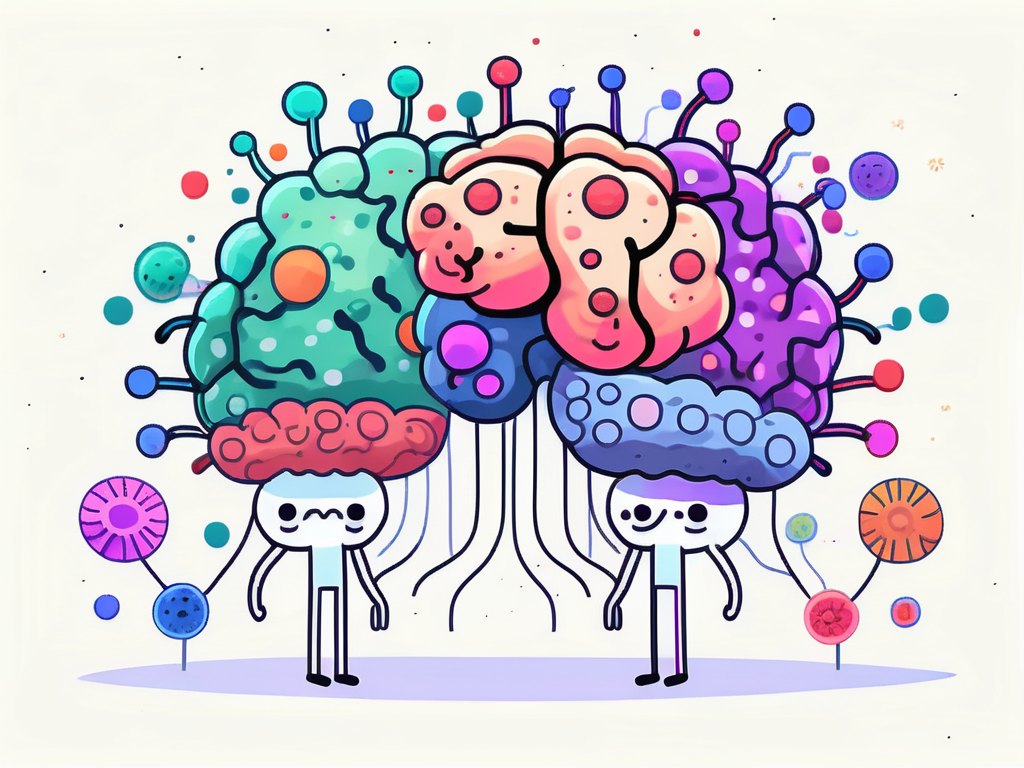
The Gut-Brain Connection
Have you ever wondered how your gut health might influence your mental well-being?
Research has revealed a fascinating connection between the gut and the brain. The gut, often referred to as the “second brain,” communicates with our central nervous system through a complex network of nerves, hormones, and chemical signals.
This direct line of communication between your gut and your brain is known as the gut-brain axis. Your gut microbiome produces various neurotransmitters: serotonin, dopamine, and gamma-aminobutyric acid (GABA). These neurotransmitters play a role in regulating our emotions, mental well-being, cognitive function, and even behaviour.
Imbalances in this intricate system have been linked to conditions like depression, anxiety, autism spectrum disorder, and neurodegenerative disorders like Parkinson’s and Alzheimer’s.
When your gut microbiome is out of balance, the communication between these two vital systems can become disrupted, leading to a range of mental and emotional disturbances. Conversely, nurturing a healthy gut microbiome can have positive effects on your cognitive abilities, mood, and overall neurological health.
Understanding the gut-brain connection opens up exciting possibilities for novel therapeutic interventions targeting the microbiome in the treatment of mental health disorders.
Diet’s Influence on the Gut Microbiome
The foods you eat can have a significant impact on the health and diversity of our gut microbiome. Our dietary choices feed different microbes in the gut, helping shape the overall microbial community. Eating a varied diet supports a diverse microbiome, which is associated with many health benefits.
I recommend you read this book Tim Spector: Food for Life
- Fibre from fruits, vegetables, whole grains, and legumes provides prebiotics that promote the growth of beneficial Bifidobacterium and Lactobacillus species. These fermentable fibres act like fertilisers for healthy microbes.
- Saturated fats and animal proteins favour the growth of Bilophila, Alistipes, and Bacteroides species, which are linked to inflammation and disease.
- Complex carbs and plant foods support greater microbiome diversity than diets high in fat and protein.
- Artificial sweeteners, emulsifiers, and other food additives can alter gut flora, increasing susceptibility to metabolic disease.
- Nutrients like polyphenols and antioxidants in colourful fruits and vegetables help nourish good bacteria.
- Resistant starch from unripe bananas, raw oats, cooked-then-cooled potatoes, and rice helps nourish Ruminococcus, Eubacterium, and Bifidobacteria species.
- Arabinoxylan fibres in wheat bran, barley, or corn are metabolised by Bacteroides species, which produce short-chain fatty acids.
Benefits of a diverse diet for the microbiome
- Supports the growth of diverse “good bacteria” that carry out important functions like producing vitamins, aiding digestion, regulating immunity, and protecting against infection.
- Limits the growth of harmful bacteria.
- Contributes to the production of key metabolites like short-chain fatty acids that support gut barrier integrity.
- Provides a wider array of fermentable substrates to nourish a diverse microbiota.
- Reduces inflammation by limiting the growth of bacteria that trigger inflammatory responses.
- Improves metabolism and reduces disease risk by supporting microbes involved in food breakdown and nutrient absorption.
- Eating a variety of whole plant foods and fibre-rich prebiotic foods helps support a healthy, diverse gut microbiome, which provides many benefits for overall health.
Probiotics and Prebiotics
Probiotics are live microorganisms that provide health benefits when consumed. The most common probiotic strains come from the Lactobacillus and Bifidobacterium genera of bacteria. Specific probiotic strains like Lactobacillus rhamnosus GG, Lactobacillus reuteri, and Bifidobacterium lactis have been shown to improve gut health and digestive issues like diarrhoea, constipation, IBS, and intestinal inflammation.
Prebiotics are a type of fibre that feeds the good bacteria in your gut microbiome. By consuming prebiotic foods, you can increase beneficial bacteria. Foods high in prebiotics include onions, garlic, bananas, asparagus, oats, apples, and legumes.
Prebiotics can improve gut motility, increase mineral absorption, and promote the growth of helpful Lactobacillus and Bifidobacterium species.
Including probiotic foods like yoghurt, kefir, sauerkraut, kimchi, kombucha, and prebiotic foods like whole grains, garlic, onions, and bananas as part of a balanced diet can help maintain a diverse, thriving gut microbiome.
Microbiome and Disease
The human gut microbiota plays a major role in health and disease, with its composition varying significantly between healthy individuals and those suffering from a range of conditions. Understanding these differences is important for developing targeted interventions.
Diseases Linked with Gut Microbiota Alterations:
- A diverse range of diseases, including Type 2 diabetes, obesity, non-alcoholic liver disease, cardiometabolic diseases, cancer, arthritis, autism, depression, anxiety, sleep disorder, hypertension, and gout, show distinct microbiota compositions compared to healthy subjects.
- Gut microbiota dysbiosis is associated with serious health issues like cancer, cardiovascular disease, irritable bowel syndrome (IBS), inflammatory bowel disease (IBD), and antibiotic-resistant infections.
- Obesity and Type 2 diabetes correlate with gut microbiota changes, such as reduced bacterial complexity and depletion of Bacteroides spp.
- Faecal microbiota transplantation from healthy individuals has shown improvements in insulin sensitivity in obese patients.
- An increased presence of Akkermansia muciniphila is linked to better metabolic health in obese individuals.
- Gut Microbiome and Broader Health Conditions:
- The gut microbiome’s role extends to intestinal and extraintestinal disorders such as IBDs, coeliac disease, IBS, colorectal cancer (CRC), chronic liver diseases, and pancreatic disorders, each associated with specific microbial and metabolic disturbances.
- Dysbiosis has also been linked to autoimmune diseases, atopic eczema, and asthma.
- The gut-brain axis highlights how gut microbes influence neurological functions, with imbalances potentially leading to mental disorders.
This intricate relationship underscores the importance of maintaining a balanced and healthy gut microbiome for disease prevention and overall well-being.
Restoring balance through diet, probiotics, prebiotics, and other lifestyle measures may help improve these associated conditions.
Improving Gut Microbiome Health
Key Takeaways
The gut microbiome plays an essential role in human health, influencing digestion, immunity, mood, and more. Supporting the growth of beneficial bacteria can help optimise gut microbiome function. Here are some key ways to improve gut health through diet, lifestyle, and consumption of probiotics and prebiotics:
- Eat a diverse range of plant foods, like fruits, vegetables, whole grains, legumes, nuts, and seeds. These provide prebiotic fibre that feeds good bacteria.
- Limit added sugars, refined carbohydrates, and ultra-processed foods. These can decrease microbial diversity.
- Eat fermented foods like yoghurt, kefir, sauerkraut, kimchi, miso, and tempeh. These contain probiotics.
- Enjoy prebiotic-rich foods like garlic, onion, asparagus, oats, apples, and bananas.
- Manage stress levels, which can alter gut bacteria. Consider mind-body practices like meditation, yoga, or deep breathing.
- Ensure adequate sleep, as a lack of sleep is linked to reduced microbial diversity.
- Stay active through walking, sports, or other moderate exercise, which is associated with a healthier microbiome composition.
- Enjoy probiotic foods like yoghurt, kefir, kombucha, kimchi, sauerkraut, fermented pickles (no vinegar), miso, and tempeh.
- Eat prebiotic foods like bananas, onions, garlic, leeks, asparagus, and apples.
Making research-backed dietary and lifestyle changes while consuming probiotic and prebiotic foods can help support microbiome balance and diversity for improved gut and overall health.
Gut bugs: friends or foes? The Verdict
So, are gut bugs our friends or foes? The answer is both. The microbiome is a complex ecosystem with a delicate balance between beneficial and harmful microorganisms. When the microbiome is in harmony, it can greatly contribute to our overall health and well-being. However, imbalances in the microbiome can lead to a host of health problems.
By understanding the role of the microbiome, taking steps to maintain a healthy balance of gut bugs, and nourishing our microbiome through a nutrient-dense diet, we can harness the power of these tiny organisms and pave the way for optimal health.
So, let’s embrace our gut bugs, for they are not just foes to be feared but also friends to be cherished on our journey to wellness.
This article is not intended to replace professional medical advice. If you have specific health concerns or conditions, consult with a healthcare professional.
Disclaimer: The information provided in this article is for educational purposes only and should not be considered medical advice. Always consult with a healthcare professional before making any changes to your diet or lifestyle.
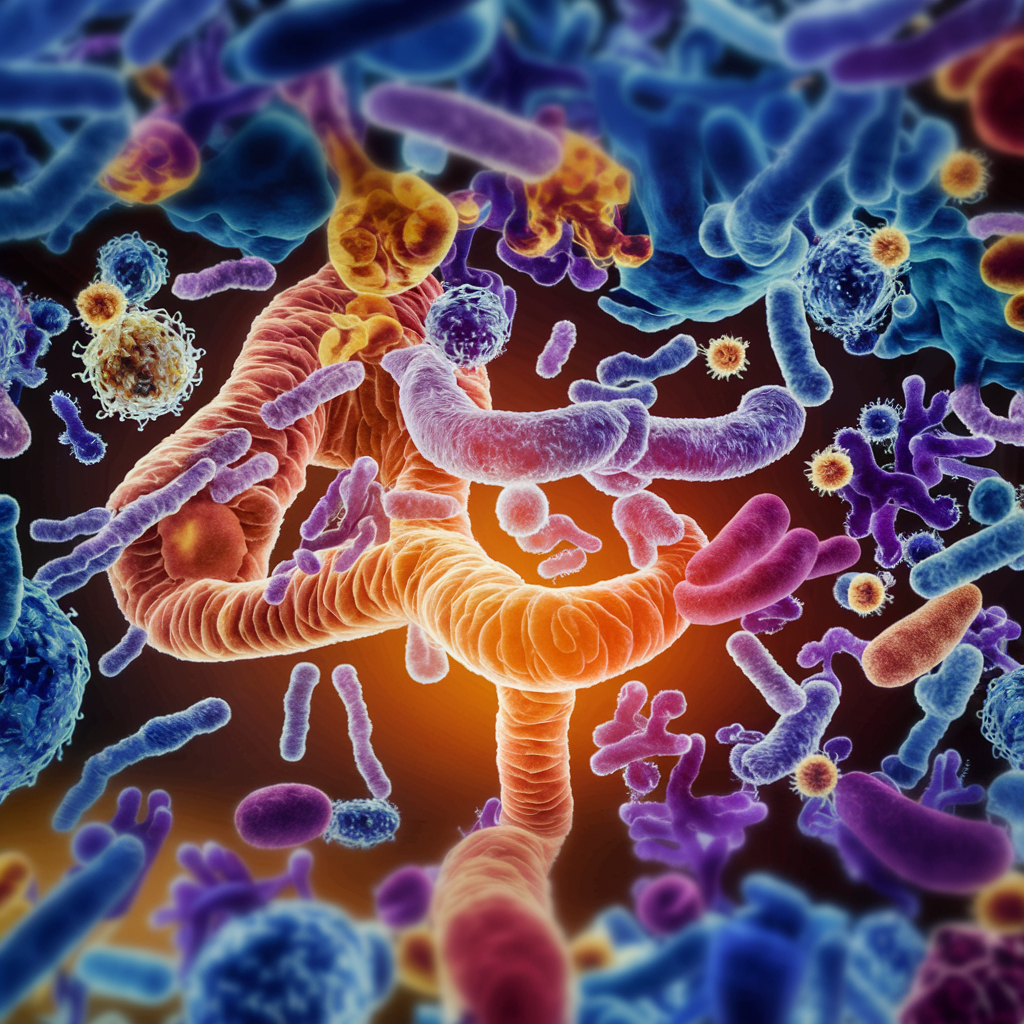
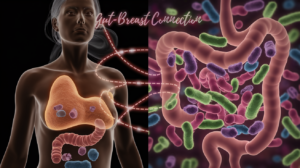

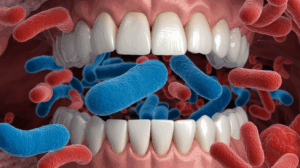
Pingback: Eat Smart, Prevent Disease: Food as Medicine for Long-Term Health - MPHmedicalwriter
Pingback: The Vital Link: Unveiling the Sleep-Health Connection for Optimal Well-Being - MPHmedicalwriter